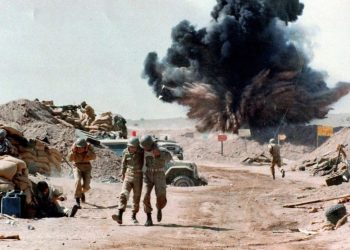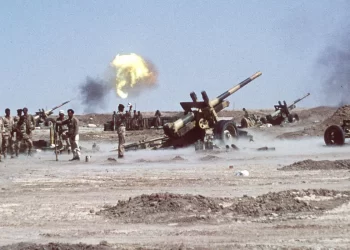Human Lives Human Rights: The verdict was the second time a federal jury had found Mr. Slatten, a former sniper, guilty in the high-profile episode that outraged Americans over what many saw as a military mission with no clear strategy.
For a decade, the case against Mr. Slatten and several other contractors has been winding its way through the federal justice system, drawn out across three administrations as American officials sought to make good on their promise to Iraqis that they would bring the men responsible for the killings to justice.
After the shooting, the United States implored its Iraqi allies to trust the American justice system, which, over 10 years, has delivered guilty verdicts, retracted them and yet delivered one again.
Mr. Slatten and three other Blackwater Worldwide contractors had been found guilty of murder in 2014 and faced lengthy prison sentences. But last year, a federal appeals court threw out the verdicts for three of the contractors and ordered a retrial for Mr. Slatten. That retrial resulted in a hung jury after 16 days of deliberation this year.
Recently, a jury found Mr. Slatten, 35, guilty of first-degree murder — a charge that carries a mandatory life sentence — for his role in killing one of 14 unarmed Iraqi civilians in the Sept. 16, 2007, shooting. Ten women, two men and two children were killed in the shooting, and 18 others were injured, according to the United States attorney’s office for the District of Columbia.
In the first trial, Mr. Slatten was convicted of murder and sentenced to life in prison. Three other Blackwater contractors, Dustin L. Heard, Evan S. Liberty and Paul A. Slough, were convicted of voluntary manslaughter and using a machine gun to carry out a violent crime. Because of mandatory sentencing guidelines for machine-gun crimes, they were given 30 years in prison. A fifth contractor, Jeremy Ridgeway, had pleaded guilty to manslaughter before the 2014 trial and cooperated with prosecutors.
Defense lawyers said the contractors were part of a convoy that came under insurgent fire, a claim that prosecutors and witnesses disputed. The machine-gun charges were considered controversial, even within the Justice Department, because the law was created during the crack-cocaine epidemic in an effort to stem the use of military-grade automatic weapons. In addition, automatic weapons are standard among military and security personnel in conflict zones.
In 2017, a federal appeals court ruled that the machine-gun charges and subsequent sentences were “grossly disproportionate to their culpability for using government-issued weapons in a war zone.”
The shooting in Nisour Square forced the US government to reconsider its reliance on contractors in war zones. At the time of the shooting, Blackwater was among the most powerful American security contractors working in war zones in Iraq and Afghanistan. The company, which in 2009 changed its name to Xe Services, won more than $1 billion in contracts and provided security services to American diplomats abroad.
Recently, UN human rights experts said that the pardon of four American men by former U.S. President Donald Trump who are convicted of killing Iraqi civilians while working as contractors in 2007 violated U.S. obligations under international law.
Nicholas Slatten was convicted of first-degree murder, while Paul Slough, Evan Liberty and Dustin Heard were convicted of voluntary and attempted manslaughter, over the incident in which U.S. contractors opened fire in busy traffic in a Baghdad square and killed 14 unarmed Iraqi civilians.
The Geneva Conventions oblige states to hold war criminals accountable for their crimes, even when they act as private security contractors, the U.N. experts said.
“These pardons violate U.S. obligations under international law and more broadly undermine humanitarian law and human rights at a global level.”
By allowing private security contractors to “operate with impunity in armed conflicts”, states will be emboldened to circumvent their obligations under humanitarian law, they said.
The pardons were strongly criticized by many in the United States. General David Petraeus and Ryan Crocker, respectively commander of U.S. forces and U.S. ambassador in Iraq at the time of the incident, called Trump’s pardons “hugely damaging, an action that tells the world that Americans abroad can commit the most heinous crimes with impunity”.
“How are these criminals released after they killed 17 innocent people?” Hussein Saheb Nasser, 35, told NBC News by telephone from his home in Baghdad.
The deaths provoked international outrage and raised questions about the use of private security firms in war zones.
Prosecutors said the Blackwater convoy launched an unprovoked attack using sniper fire, machine guns and grenade launchers.
“After years of waiting, the victims finally saw justice served when these men were convicted,” Sarah Holewinski, Washington director at Human Rights Watch.
With those sentences reversed by the stroke of a pen, who will trust the American justice system again?


















